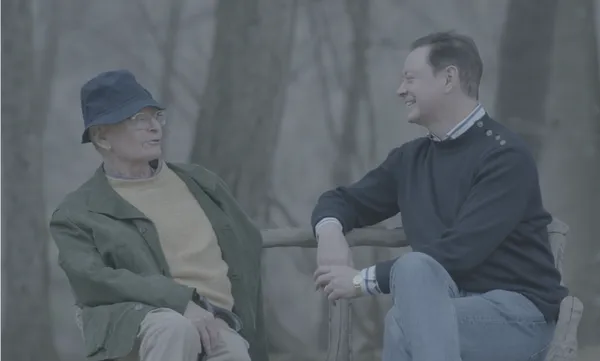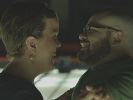Eye For Film >> Movies >> Far From The Tree (2017) Film Review
Far From The Tree
Reviewed by: Jennie Kermode

Being born in circumstances that make one an outsider is not an easy thing to cope with. It is, however, a subject often explored in drama and, more recently, in documentary; and in many cases, there are reference points available to help one navigate. This is less true for the parents of such children, and the diversity of their reactions is something that Rachel Dretzin explores in this film, which is based on the book by Andrew Solomon. Taking Solomon's experience as a starting point - he appears extensively in interview clips - she treads a careful line between the risk of appropriating other people's struggles and the importance of giving a voice to parents, of understanding that they can struggle too.
Solomon was rejected outright by his parents when he came out as gay. His situation stands in stark contrast to the parents here who have tried to stand by their son even though he killed a child - horrified by that act yet unable to understand how anyone could stop loving their offspring. We also meet parents who fought to help their son with Down syndrome become more 'normal', only to realise that, ultimately, he would be himself, and they didn't love him any less for that. Meanwhile, another couple discuss their relationship with their autistic son, from the horror they felt as he withdrew from the world to the joy of reunion when he found a new way of communicating with them; and we meet a group of little people who talk about family life, the importance of finding community, and the politics of difference.

The voices of those marked out as different are important to ensuring that this is never a one-sided story, and as a couple with achondroplasia discuss the possibility of having a normal-sized child, the point is neatly made that difference is relative. One is reminded of Dorothy Parker's caution that one should not assume a thing is normal when it is merely common. only the murderer does not speak for himself, but his siblings, who seem perfectly ordinary, are there to offer caution to those who might rush to blame the parents. His story is important because it alerts us to that culture of blame, putting the fear of family dishonour into context, and it illustrates that almost of all of us have something that would make us hesitate, even if we believe that parental love should be unbreakable.
So how do troubled parents cope? How do they reconcile themselves to difference and, if they resist rejection, find ways of building positive relationships with children they find hard to relate to? This film explores several different strategies. One of the biggest challenges the families describe involves loneliness and lack of support; the film should, in itself, go some way towards mitigating that, if only by acting as a reminder that this is something lots of families go through. Also important is that none of the children comes across as a victim and, with the exception of the murderer, none seems to be living an unhappy life. Where there are difficulties, they are more often than not caused by others' prejudice. We see that what makes these children so fascinating to others is only part of life for them; Dretzin efficiently captures slices of their lives that reveal them as complex people, even in the case of the boy who is still only 13.
There is a danger here of slipping into another problematic narrative: that of the inspirational disabled person who overcomes all the odds to do things others take for granted. Emotive music and the focus on positivity takes us close to this but it's balanced by the mythbusting politics of the little people and by the fact that some of the parents acknowledge there have been disappointments as well as triumphs, dreams they have had to let go of. What may feel a little too sentimental to viewers who routinely find themselves othered no doubt makes the film more accessible to people who have previously given this subject little thought, and overall this is a highly effective piece of filmmaking.
Reviewed on: 20 Jul 2018
















